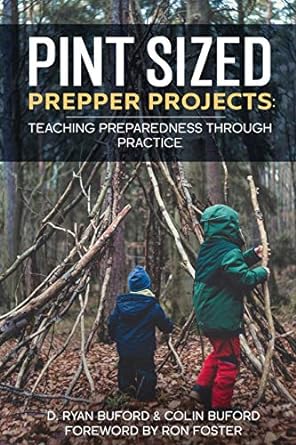[ARTICLE]: Earthquake Survival Tips
Currently in the world there have been quite a lot of dramatic changes with the recent surge of civil and political unrest, climate change, and the recent earthquakes world-wide, including the March 11th, 2011 quake in Sendai, Japan and the tsunamis that followed, and currently the potential threat of Japan's nuclear reactors meltdown and fallout, I feel it is more than about time to "consider the implications and make decisions accordingly"
Imagine you suddenly have no electricity, no running water, no natural gas, no heat, no telephone service, etc. Assume you are in your home or office, and it's not safe to leave. Emergency services are unavailable. Police and fire departments are overextended; even if you were able to contact them, they couldn't respond. You're on your own...What will you do? Again, it is important to consider those implications.
Run through the scenario in your mind. what are your options? Most recently, there is concern that the "Ring of Fire", or the tetonic plates of the Pacific ocean floor have had major sesemic activity that have caused major earthquakes in Chile, New Zealand, and now Japan this year, all of who are within the Ring of Fire.
This activity may cause a major earthquake in North Ameria whose West-coast is within that ring. Many officials are concerned about the fault lines in California slipping. If "The Big One" hits North America, are you prepared? Are we all prepared? Below is some basic information I have complied on Earthquake prepardeness and survival. Study, Practice, and Implimentaion are the the keys to ensuring you will make the right decisions for yourself and your family should disaster strike.
What is an Earthquake?
An earthquake is what happens when two blocks of the earth suddenly slip past one another. The surface where they slip is called the fault or fault plane. The location below the earth's surface where the earthquake starts is called the hypocenter, and the location directly above it on the surface of the earth is called the epicenter. Earthquakes are a common occurrence, rumbling below Earth's surface thousands of times every day.
But major earthquakes are less common. Here are some things to do to prepare for an earthquake and what to do once the ground starts shaking.
Before the Earthquake: Saftey & Preparedness
Get a Kit Get an Emergency Supply Kit, which includes items such as:
- Water (1 gallon of water per person per day for at least 3 days, for drinking and sanitation )
- Non-perishable food (like canned food) 3 days to 2-weeks worth,
- A working battery-powered or hand-crank radio
- An up-to-date first aid kit & medical supplies
- Working flashlights
- Extra batteries
- Cooking fuel
- Blankets
- Dust masks
- Tools needed to turn off your gas, water and electric utilities
You may want to also prepare a portable kit and keep it in your car. Learn how to survive during the ground motion. Consult a professional to learn how to make your home sturdier, such as bolting bookcases to wall studs, installing strong latches on cupboards, and strapping the water heater to wall studs. Locate a place in each room of the house that you can go to in case of an earthquake. It should be a spot where nothing is likely to fall on you.
Arrange your home for safety:
- Store heavy objects on lower shelves and store breakable objects in cabnents with latched doors.
- Don't hang heavy mirrors or pictures above where people frequently sit or sleep.
- Anchor heavy appliances and furniture such as water heaters, refrigerators and bookcases.
- Store flamable liquids away from potential ignition sources such as water heaters, stoves and furnaces.
- Get Educated, make sure your family has this information as well.
- Learn where the main turn-offs are for your water, gas and electricity.
- Know how to turn them off and the location of any needed tools.
Have a Plan Teach all members of your family about earthquake safety. This includes:
- The actions you should take when an earthquake occurs,
- The safe places in a room such as under a strong desk, along interior walls, and
- Places to avoid such as near windows, large mirrors, hanging objects, heavy furniture and fireplaces.
Your family may not be together when disaster strikes, so it is important to know how you will contact one another, how you will get back together, and what you will do in case of emergency. Have alternate means of communication. Do not rely on mobile communication soley.
Help Your Community Prepare
Inquire about emergency plans at places where your family spends time: work, daycare, and school.
Sharpen Your Skills
Take a Community Emergency Response Team (CERT) class from your local Citizen Corps charter. Keep your training current.
Plan for Cover
Identify safe places indoors and outdoors where you could take cover, such as under sturdy furniture or against an inside wall without any glass that could shatter or heavy bookcases that could fall over.
During an Earthquake: Keys to Survival
- Drop down; take cover under a desk or table and hold on.
- The goal is to protect yourself from falling objects and be located near the structural strong points of the room.
- Avoid taking cover near windows, large mirrors, hanging objects, heavy furniture, heavy appliances or fireplaces.
- Stay indoors until the shaking stops and you're sure it's safe to exit.
- Stay away from bookcases or furniture that can fall on you.
- Stay away from windows.
- In a high-rise building, expect the fire alarms and sprinklers to go off during a If you are in bed, hold on and stay there, protecting your head with a pillow.
- If you are cooking, turn off the stove and take cover.
- If you are outdoors, find a clear spot away from buildings, trees, and power lines. Drop to the ground.
- If you are in a car, slow down and drive to a clear place.
- Avoid stopping on or under bridges and overpasses, or under power lines, trees and large signs.
- Stay in the car until the shaking stops.
After an Earthquake: Recovery
- Check for injuries, attend to injuries if needed, help ensure the safety of people around you.
- Check for damage. If your building is badly damaged you should leave it until it has been inspected by a safety professional.
- If you smell or hear a gas leak, get everyone outside and open windows and doors.
- If you can do it safely, turn off the gas at the meter.
- Report the leak to the gas company and fire department.
- Do not use any electrical appliances because a tiny spark could ignite the gas.
- If the power is out, unplug major appliances to prevent possible damage when the power is turned back on.
- If you see sparks, frayed wires, or smell hot insulation turn off electricity at the main fuse box or breaker.
- If you will have to step in water to turn off the electricity you should call a professional to turn it off for you.
Resources
Earthquake Safety Tips: A Comprehensive Resource
Earthquakes account for half of the worlds top 10 most dangerous natural disasters. Prepare your self, your home, and your family with these earthquake safety tips.
http://complianceandsafety.com/safety-tips/earthquake-safety-tips.php
RSOE EDIS - Emergency & Disaster Information Service
http://hisz.rsoe.hu/alertmap/index2.php
IRIS Seismic Monitor
http://www.iris.edu/seismon/
Recent Earthquakes in Central US
http://folkworm.ceri.memphis.edu
FREE Downloadable Medical Books in PDF:
http://www.hesperian.org/publications_download.php
TAPPAN ON SURVlVAL (download)
by Mel Tappan
http://www.theurbanabo.com/assets/tappanonsurvival.txt
Are You Ready? (download)
An In-Depth Guide to Citizen Preparedness
http://www.theurbanabo.com/assets/areyouready_full.pdf
The Desperation Shopping List (download)
http://www.theurbanabo.com/assets/desperation_shopping.doc
Medicine and Nutrition for Survival 2011
http://www.theurbanabo.com/assets/mednutritionsurvival2011.doc
Recommended Items to Include in a Basic Emergency Supply Kit:
http://www.ready.gov
Sources







